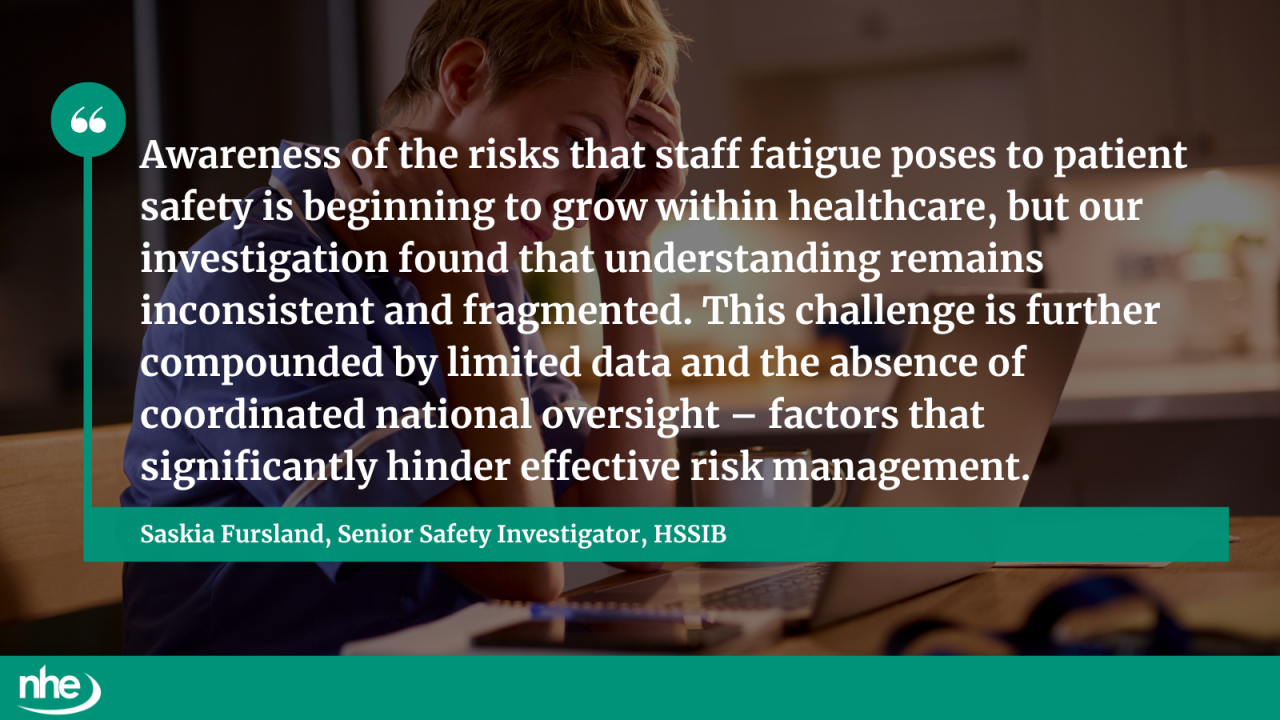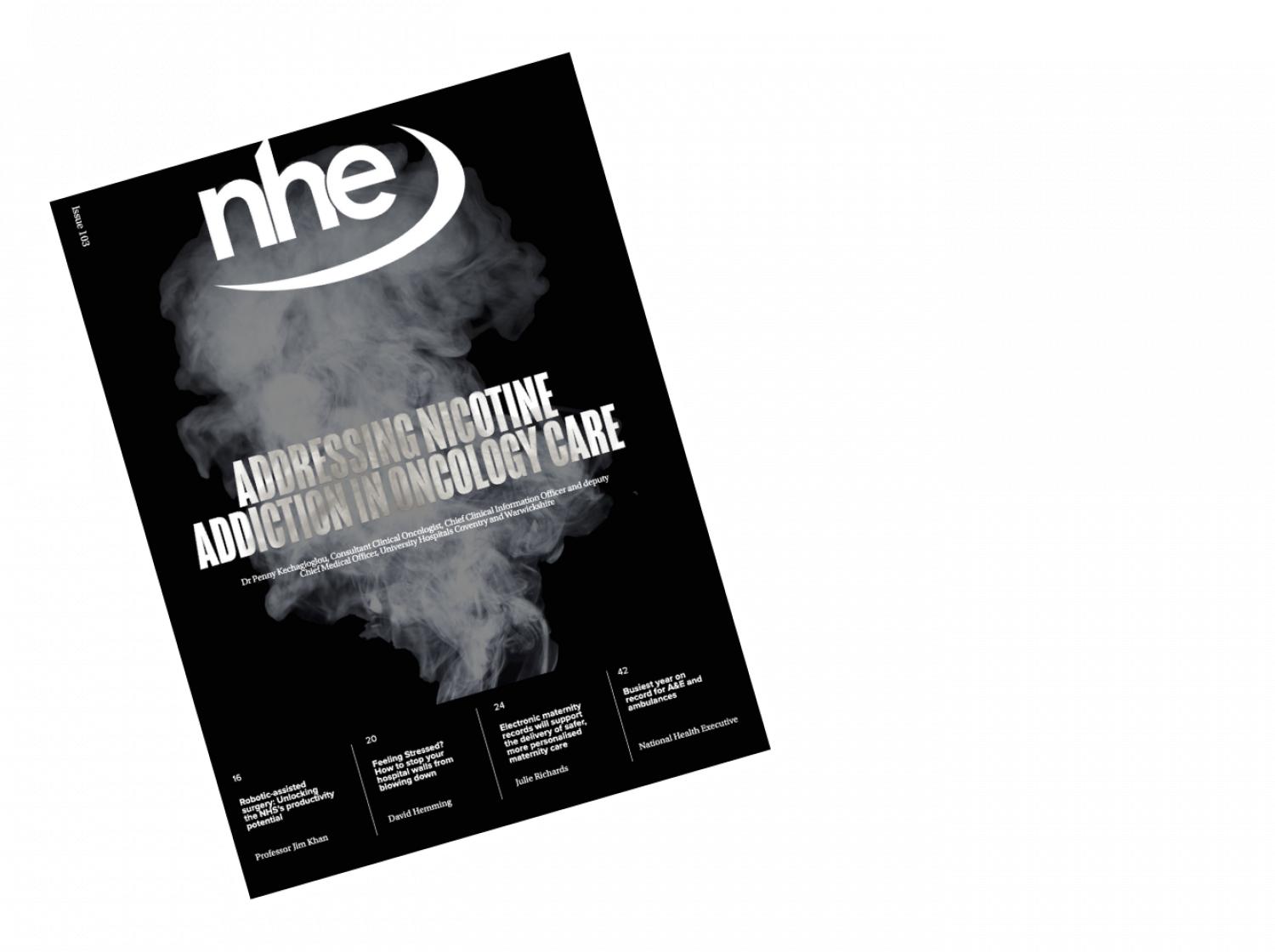Fatigue among NHS healthcare staff poses a significant yet under-recognised risk to patient safety, according to the latest investigation report from the Health Services Safety Investigation Body.
The report examines the impact of staff fatigue on patient safety, revealing a lack of robust systems to monitor and manage this issue despite increasing demands on the NHS workforce.
Drawing on interviews, site visits, national data, and expert insights, the investigation found that staff fatigue contributes directly and indirectly to patient harm. However, fatigue is not routinely captured or considered in patient safety event reporting or learning reviews.
The report highlights that fatigue in healthcare is often misunderstood, viewed primarily as a wellbeing concern rather than a critical patient or staff safety risk. This narrow perception leads to fatigue being treated as an individual issue, with limited organisational accountability, creating a culture of blame.
Commenting on the report, HSSIB Senior Safety Investigator Saskia Fursland said:
“Fatigue is more than just being tired – it can significantly impair decision-making, motor skills, and alertness. We must move away from viewing fatigue as an individual issue and putting the onus on personal responsibility and instead treat it as a system-level risk that deserves urgent attention.
“Awareness of the risks that staff fatigue poses to patient safety is beginning to grow within healthcare, but our investigation found that understanding remains inconsistent and fragmented. This challenge is further compounded by limited data and the absence of coordinated national oversight – factors that significantly hinder effective risk management.
“As the NHS prepares for reform, the report underscores the need for strong, unified action to protect both patients and healthcare professionals from the risks associated with fatigue.”

Staff expressed concerns about speaking up when fatigue may have contributed to patient safety incidents, fearing disciplinary action. This culture discourages transparency and hampers opportunities for system-wide learning and improvement. A positive safety culture is key to managing this risk, with some NHS trusts already making progress by using fatigue-related questions in incident reports.
Key findings include:
- Fatigue is linked to preventable patient harm and staff safety incidents, including fatal road accidents post-shift.
- Organisational and personal factors, such as shift length, lack of breaks, caring responsibilities, and socioeconomic pressures, contribute to fatigue.
- Cultural norms in the NHS, including pride, heroism, and long working hours, discourage open conversations about fatigue.
- Fatigue risks are not consistently captured in data or addressed in governance or safety learning systems.
The report concludes with two safety recommendations aimed at improving data capture mechanisms on fatigue and establishing a consensus definition of fatigue for healthcare. It also contains local learning prompts to encourage a response to the risk at an NHS trust level.
Image credit: iStock



















